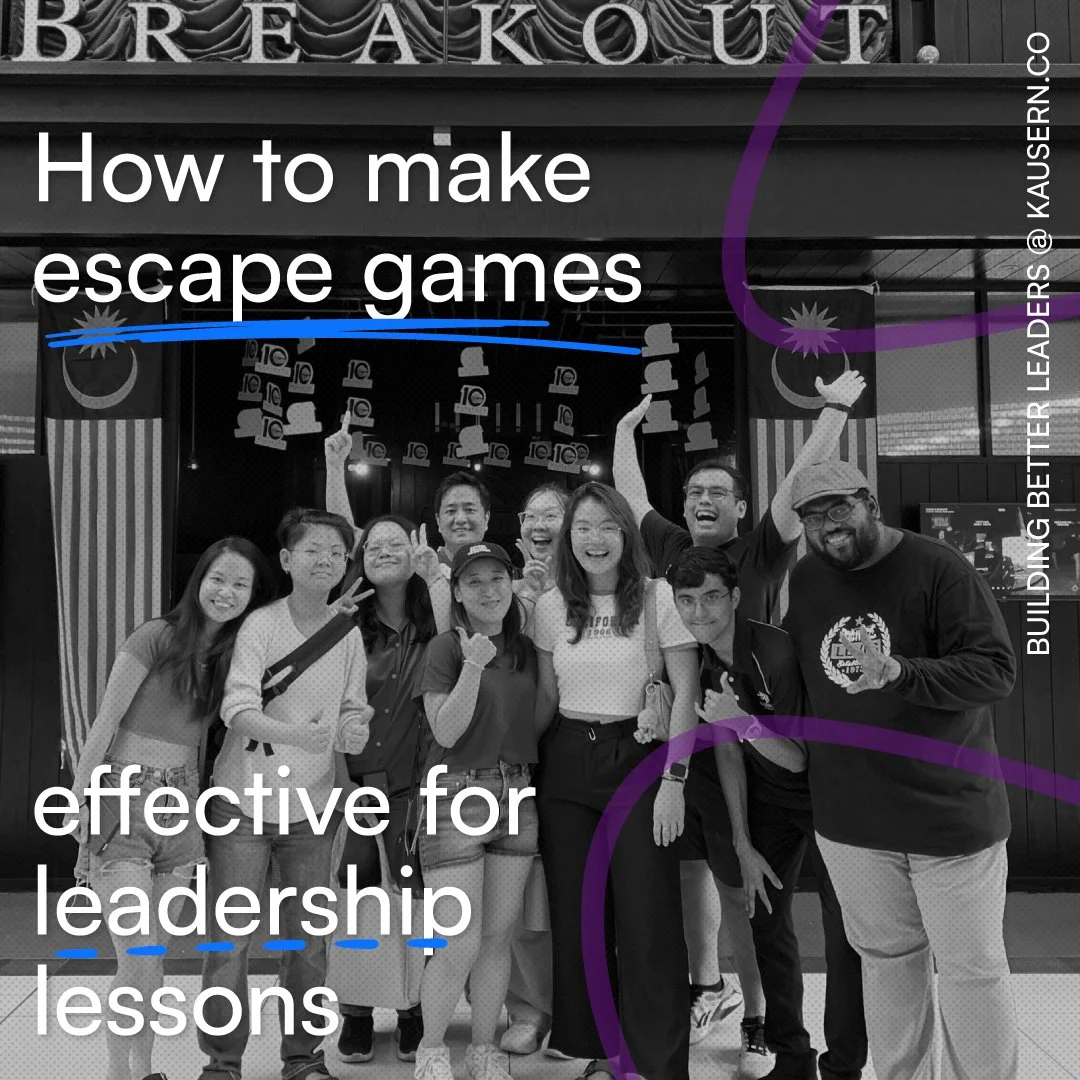How to make escape games effective for leadership lessons
Escape games are a fun way to teach essential leadership skills like teamwork, communication, problem-solving, and time management.
For the current Leadership Pod intake, I wanted to go beyond traditional classroom sessions, so I reached out to @Superdough’s creative team (Breakout | Hauntu | Novus), led by @Johnny Ong, to see if escape games could help build leadership skills. His response? "Of course!"
To make escape games effective for leadership development, consider these steps:
1. Set Clear Objectives: Inform participants that the goal is to reflect on leadership dynamics, decision-making, and teamwork, not just to “escape.”
2. Assign Roles: Have participants take on specific roles that reflect real-life leadership (e.g., leader, strategist, communicator); without it members will hesitate to step up and work in silo instead of working together to break out.
3. Assign an Observer: This person will shadow and track leadership dynamics during the game, taking notes for the debrief.
4. Key Observations During Gameplay:
Team Dynamics: How did the team communicate under pressure? Did everyone contribute?
Problem-Solving: How were decisions made? How did the team handle setbacks?
Leadership Reflection: Which leadership traits emerged? Was task delegation effective?
Team Care: Was everyone engaged? How did the team support struggling members?
5. Debrief After the Game: Gather participants in a circle to discuss what went well, what could be improved, what they learned about themselves, and how these lessons apply to workplace leadership. The Observer concludes with their observation and insights.
Was it worth it? Absolutely! My two Pod Leaders (acting as observers) and I unanimously rated it “10/10.” One member shared, “I’ve played escape games before, but not through a leadership lens. I had to overcome my fear of the dark while leading—an unforgettable experience!”

